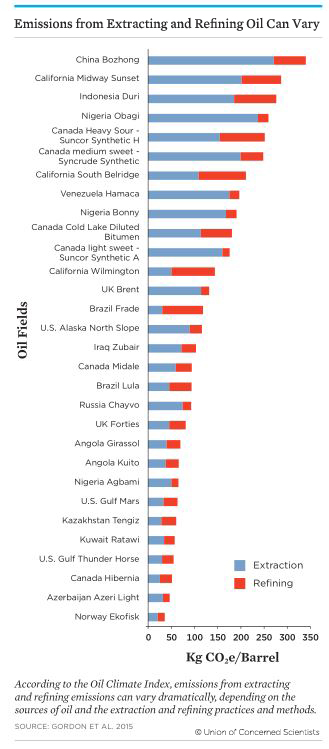Climate-related transportation policies have enjoyed relative success in the United States. After years of stagnation, federal fuel economy standards were passed in 2011, increasing the efficiency of new cars and trucks. Advanced new cellulosic ethanol plants are finally ramping up, churning out low-carbon alternatives to gasoline. And more electric vehicles are on the road now than ever before.
Yet despite this progress, oil—the main ingredient in gasoline—has steadily become dirtier. The pollution associated with extracting and refining a barrel of oil has increased by nearly a third over the last decade, and now varies by a factor of more than five: from less than 50 kilograms of carbon emissions per barrel to more than 250 kilograms. These emissions represent a small share of gasoline’s total climate impact, but it’s an important one: given the global scale of oil consumption, even slight increases in oil-related emissions can have dramatic—and disastrous—consequences.
Read the rest of the article here.

